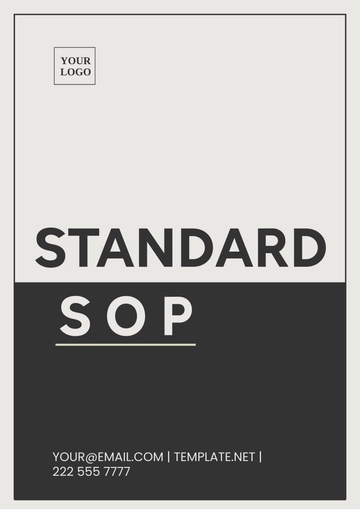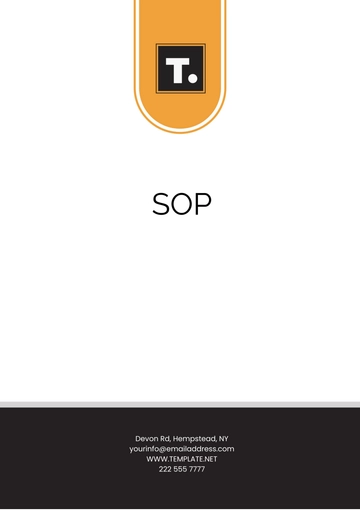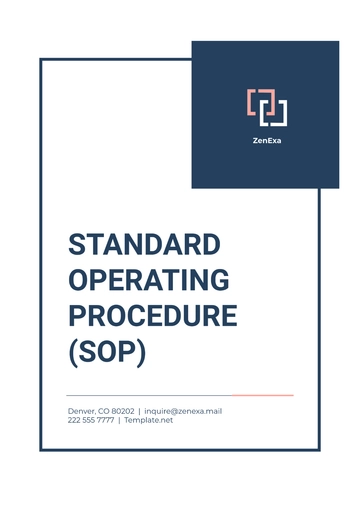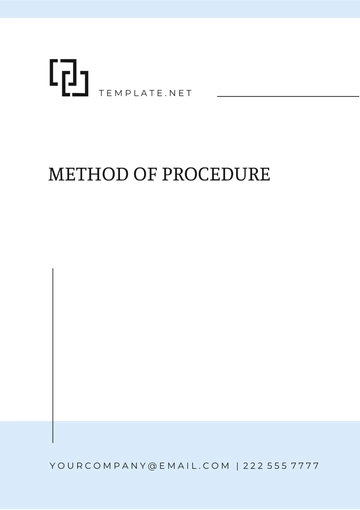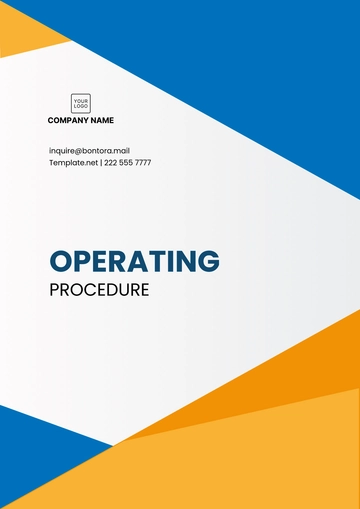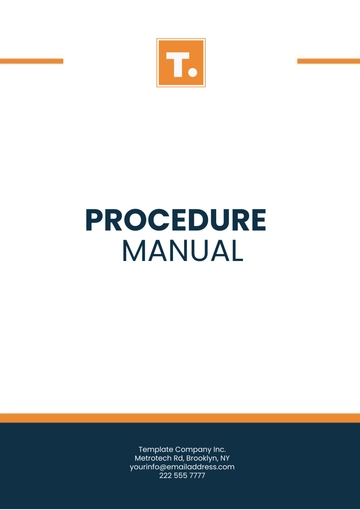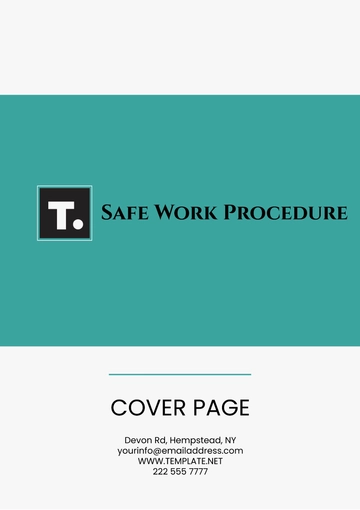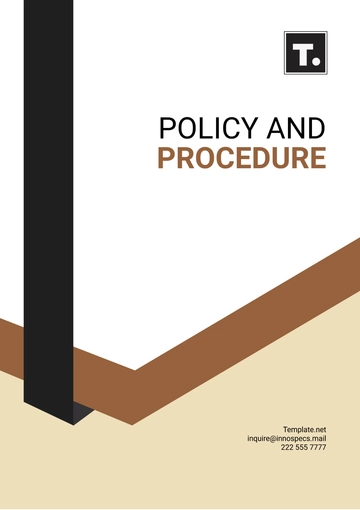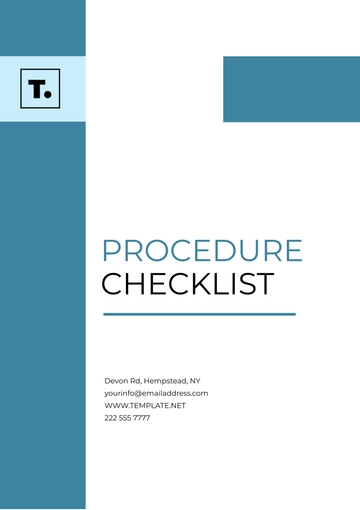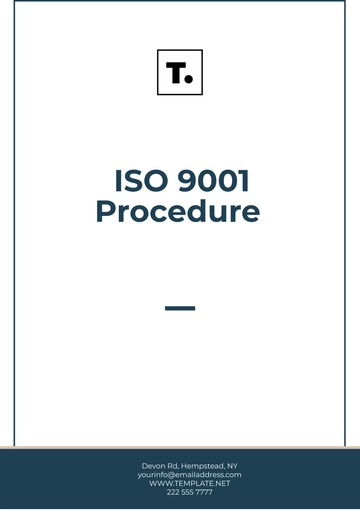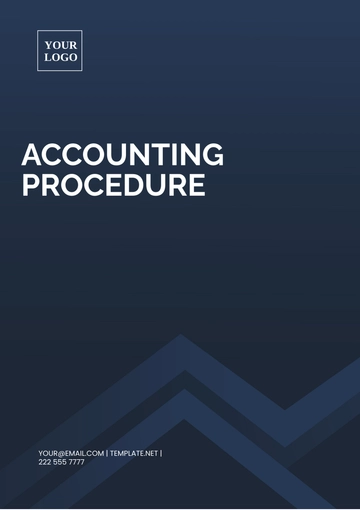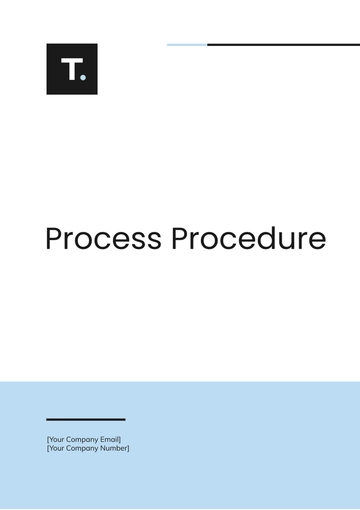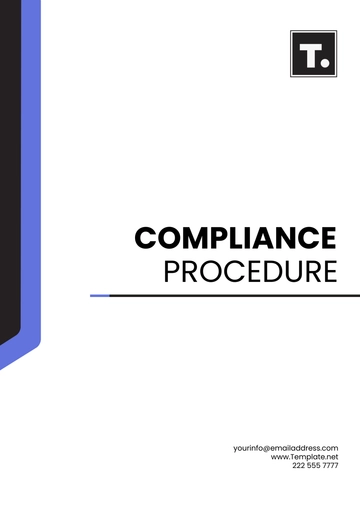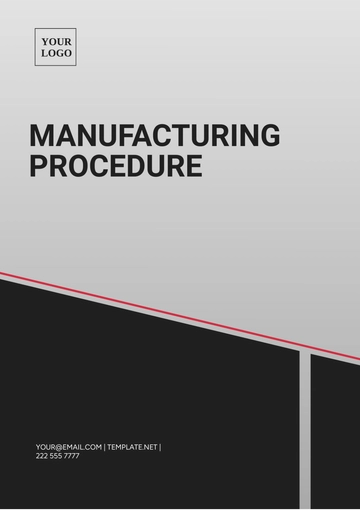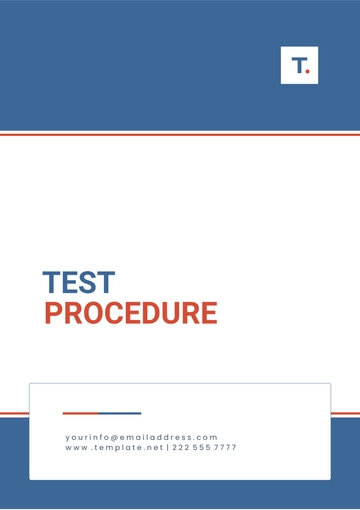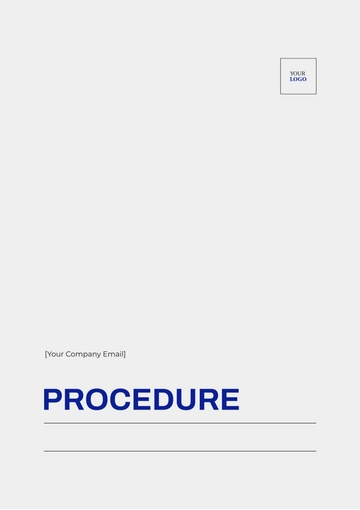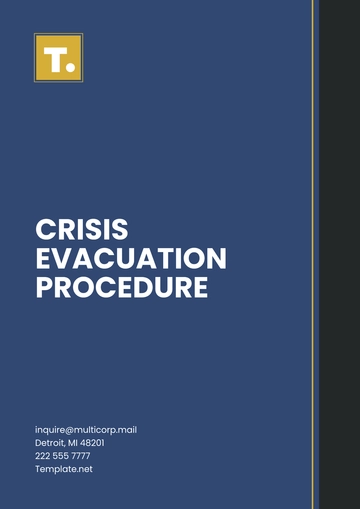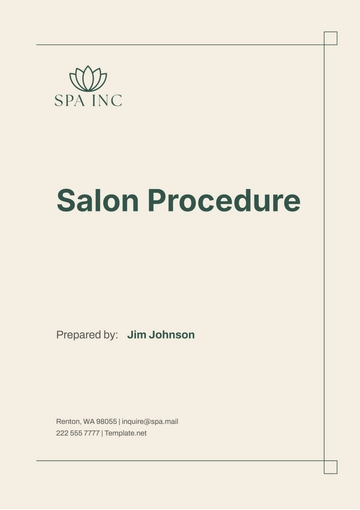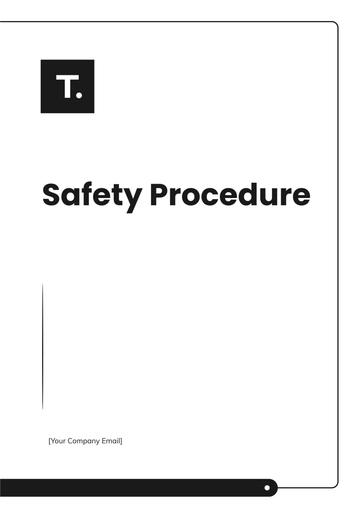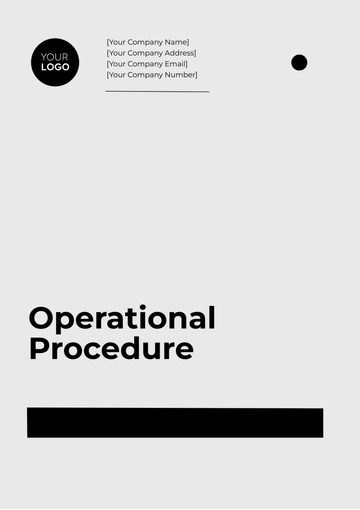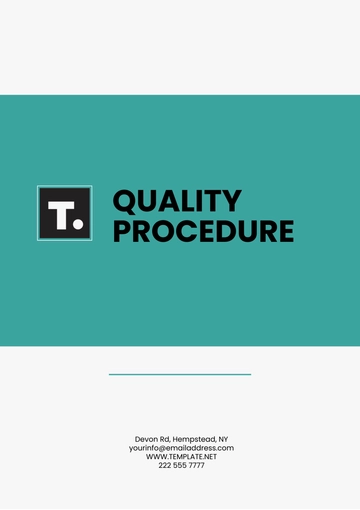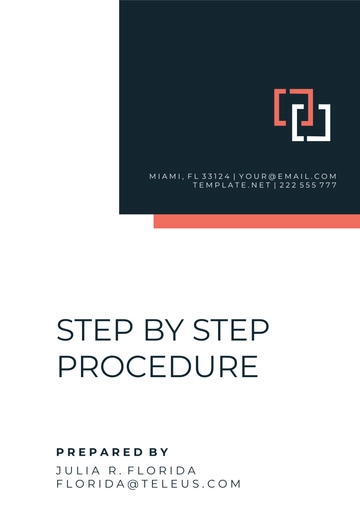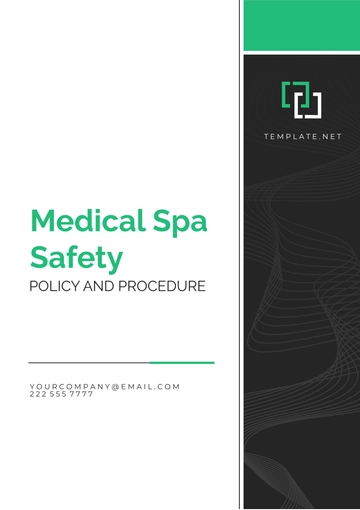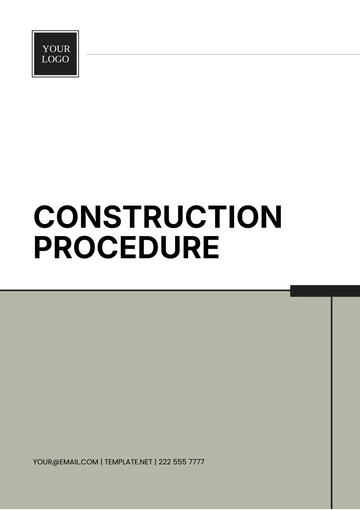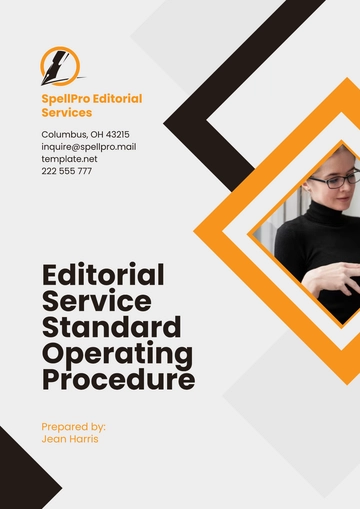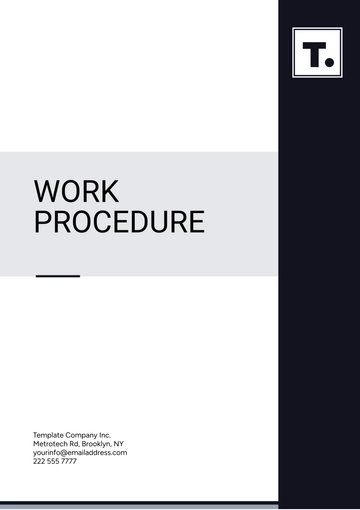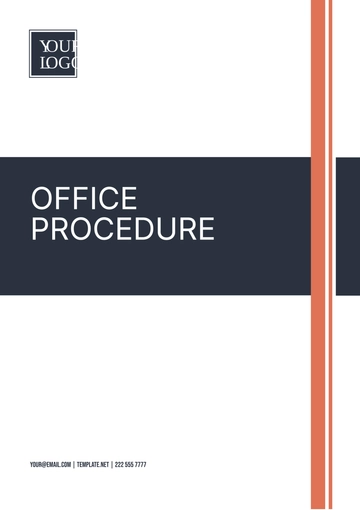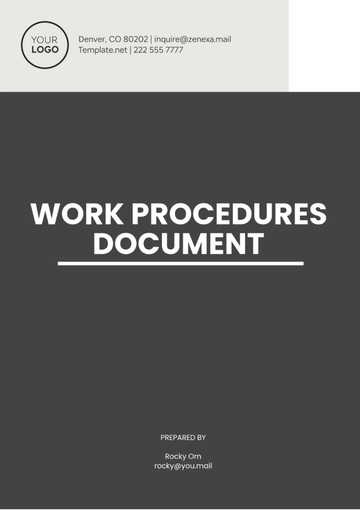Free Travel Agency Overtime Procedure
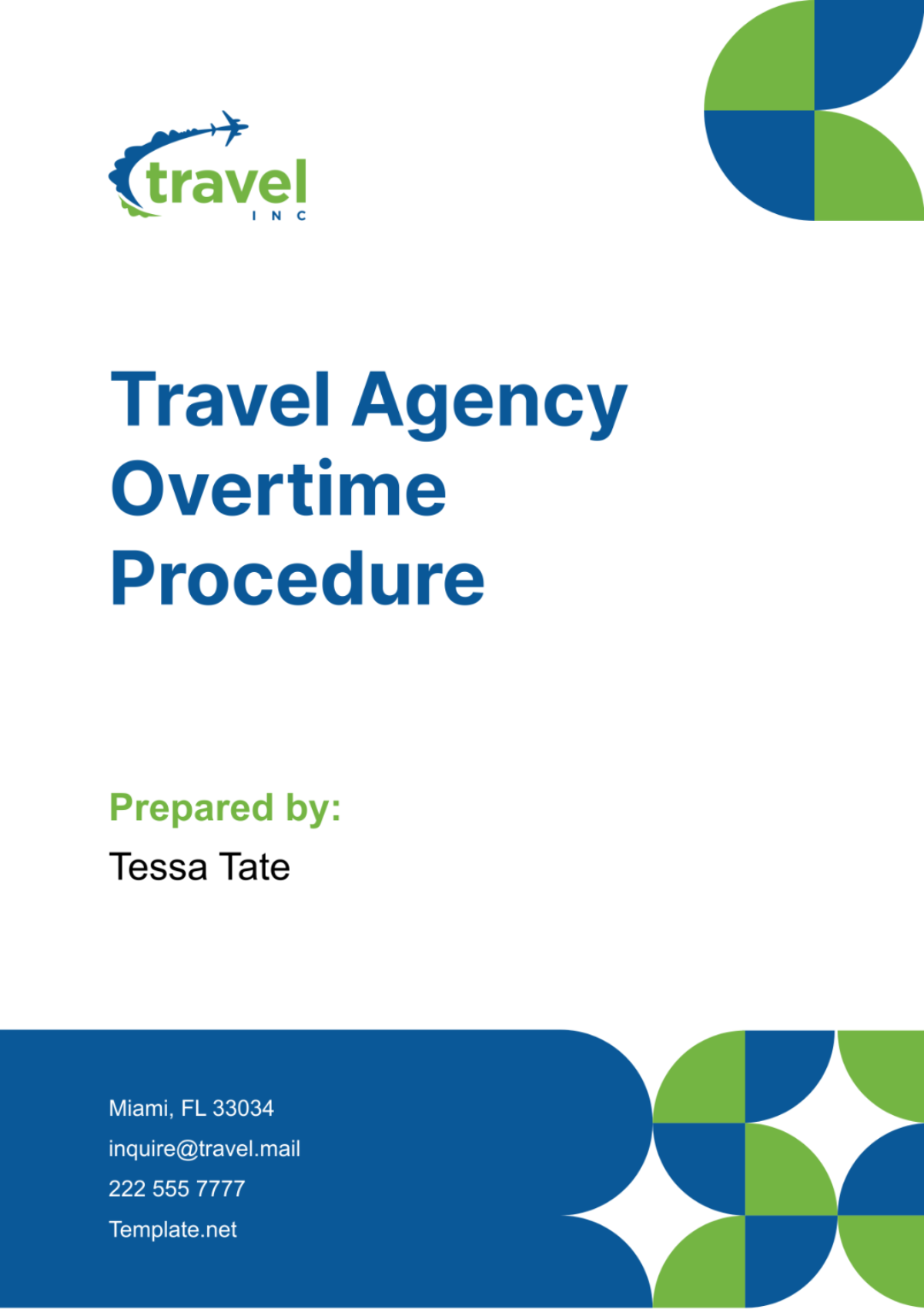
1. Introduction
Purpose
The purpose of this Overtime Procedure document is to outline the guidelines and regulations governing overtime work at [Your Company Name]. This procedure aims to ensure effective management of extended work hours, maintain operational efficiency during peak travel seasons, and uphold the well-being of our employees.
Scope
This policy applies to all employees of [Your Company Name], both full-time and part-time, who are eligible for overtime compensation under the applicable labor laws.
2. Definitions
Overtime: Any work time that exceeds the standard scheduled hours as per the employee contract or exceeds 40 hours per week.
Eligible Employees: All employees classified under non-exempt status as per federal and state labor laws are eligible for overtime.
Compensatory Time: Paid time off that is accrued in lieu of immediate overtime pay, at the discretion of management and within the bounds of applicable labor laws.
3. Policy Details
Authorization Process
Overtime must be pre-approved by the immediate supervisor or department manager. The process for requesting and approving overtime is as follows:
Request Submission: Employees must submit an overtime request via the company’s internal portal at least 48 hours in advance.
Approval: The supervisor reviews the request based on staffing needs and budget considerations and either approves or denies the request within 24 hours.
Overtime Rate
Overtime compensation is provided at a rate of one and a half times the standard hourly pay. This increased rate of pay applies to any hours worked in excess of the typical 40-hour workweek.
4. Responsibilities
Employee Responsibilities
Reporting: Accurately log all hours worked, including the start and end times of overtime, in the company’s electronic timekeeping system.
Request Compliance: Adhere strictly to the procedure for requesting overtime, ensuring all necessary documentation is complete and submitted on time.
Managerial Responsibilities
Approvals: Managers are responsible for reviewing and approving overtime requests. They must ensure that approvals are based on real operational needs and comply with budget allocations.
Monitoring: Oversee the distribution and accumulation of overtime across all team members to prevent certain employees from working excessive hours and others from working too few.
Responsibility | Description | Associated Department |
|---|---|---|
Approve Overtime | Review and approve/deny overtime requests based on necessity. | Direct Supervisor |
Monitor Employee Hours | Keep track of individual and team overtime hours for fairness. | HR and Department Heads |
Employee Training | Ensure all employees are informed about overtime policies. | HR |
Record Keeping | Maintain accurate records of overtime hours and approvals. | HR |
5. Overtime Scheduling
Planning and Forecasting
Utilizing historical data and upcoming travel trend forecasts, managers should prepare staffing rosters that minimize the need for unplanned overtime. This approach allows better management of human resources during peak times such as holidays and special events.
Voluntary vs. Mandatory Overtime
Voluntary Overtime: Employees are first asked to volunteer for overtime through an internal sign-up sheet, which is monitored to ensure equitable opportunity.
Mandatory Overtime: If insufficient volunteers are available, mandatory overtime may be required. In such cases, the assignment of overtime will rotate among qualified employees to distribute work fairly.
6. Compensation and Benefits
Payroll Processing
Overtime pay is processed with the subsequent payroll after the pay period in which it was earned. The table below outlines the payroll schedule:
Pay Period Ending | Pay Date | Overtime Inclusion |
|---|---|---|
15th of the month | Last day of the month | Included |
Last day of the month | 15th of the following month | Included |
Time Off in Lieu
Employees have the option of selecting compensatory time off rather than receiving overtime pay. For every hour of overtime worked, they are entitled to 1.5 hours of compensatory time. Similar to overtime requests, any requests to take compensatory time off must undergo the same approval process.
7. Overtime Limits and Health Management
Maximum Overtime Limits
To safeguard employee health and ensure compliance with labor laws, the following maximum limits are set:
Type | Daily Limit | Weekly Limit | Conditions |
|---|---|---|---|
Standard | 12 hours | 56 hours | Under normal operations |
Emergency | 16 hours | 64 hours | Only with HR approval and in critical situations |
Health and Safety Considerations
Employee wellness is paramount, especially during extended work periods. Managers are required to enforce breaks and manage schedules to allow for adequate rest, adhering to the following guidelines:
At least 30 minutes of rest for every 4 hours of overtime.
A minimum of 10 hours rest between shifts.
8. Record Keeping and Compliance
Documentation Requirements
Maintaining accurate and comprehensive records of overtime hours and approvals is crucial for compliance with labor laws and internal audits. These records will include:
Overtime Request Forms: Each request for overtime must be documented using a standardized form that records the date, hours requested, the reason for overtime, and approval signatures.
Timekeeping Records: Electronic timekeeping systems will capture every employee’s working hours, including overtime. These records must be tamper-proof and regularly backed up.
Approval Logs: A log of all approved and denied overtime requests will be maintained to track decisions and identify patterns or biases in the approval process.
Records will be stored securely in digital format within HR management systems, with access restricted to authorized personnel only. Physical copies of overtime documents, if necessary, will be kept in locked cabinets in the HR department.
Audit and Compliance
Regular audits are essential to ensure adherence to the overtime policy and to identify any areas where compliance may be at risk. The audit process includes:
Annual Internal Audits: Conducted by the internal audit team to review overtime records, approval logs, and compliance with policy.
External Audits: External auditors may be engaged periodically to verify compliance with labor laws and internal fairness in overtime assignments.
Non-compliance found during audits will be addressed through corrective actions, which may include retraining managers, revising policies, or taking disciplinary actions against those who violate the policy.
9. Dispute Resolution
Handling Disputes
Disagreements or concerns regarding overtime can arise, and a formal process is in place to address these disputes fairly and transparently. The process includes:
Initial Complaint: Employees must submit a written complaint to HR detailing their concerns regarding overtime pay or scheduling. This complaint should include as much detail as possible, including dates, amounts, and any supporting documentation.
Investigation: Upon receipt of a complaint, HR will conduct an investigation, interviewing involved parties and reviewing relevant documentation. The aim is to resolve disputes within 14 days of the complaint submission.
Resolution: Based on the findings, HR will propose a resolution. If the employee is unsatisfied with the resolution, they may request a review by the department head or escalate to a formal grievance if necessary.
Escalation Procedures
In cases where the initial resolution is deemed unsatisfactory by the employee, the following escalation procedures are available:
Department Head Review: The respective department head will review the case, considering HR's findings and the employee's objections.
Formal Grievance: If the dispute remains unresolved, the employee can file a formal grievance, which will be handled according to the company’s Grievance Procedure.
Step | Description | Time Frame |
|---|---|---|
Initial Complaint | Employee submits a written complaint to HR. | Immediate |
Investigation | HR investigates the issue. | Within 14 days |
Resolution | HR proposes a resolution. | Within 21 days |
Escalation | Review by department head or formal grievance. | Within 30 days |
10. Policy Review and Modification
Review Schedule
This policy is subject to an annual review; however, it may be reviewed more frequently should there be significant changes in labor law or changes in operational strategy that necessitate an earlier reassessment.
Modification Process
Proposals for modification can be submitted to HR. A committee including HR representatives and department heads will review the proposal. Approval requires a 75% majority from the senior management team.
11. Communication and Training
Employee Awareness and Training
It is essential that all employees understand the rules and their rights regarding overtime. Training sessions will be conducted to address these topics:
Topic | Description | Frequency |
|---|---|---|
Overtime Policy Overview | A comprehensive review of overtime procedures and employee rights. | Annually |
Timekeeping Training | How to accurately record time worked, focusing on overtime hours. | Upon hiring and bi-annually |
Health and Safety | Importance of health during overtime and how to manage extended hours. | Bi-annually |
Policy Accessibility
This policy will be available on the company intranet, in the HR office, and distributed in booklet form to each employee upon induction.
12. Conclusion
This comprehensive Overtime Procedure ensures that [Your Company Name] maintains an efficient, fair, and legally compliant approach to managing overtime. This structure supports our commitment to employee well-being and operational excellence. Employees or managers with questions or who need clarification are encouraged to contact HR.
- 100% Customizable, free editor
- Access 1 Million+ Templates, photo’s & graphics
- Download or share as a template
- Click and replace photos, graphics, text, backgrounds
- Resize, crop, AI write & more
- Access advanced editor
Manage extra work hours effectively with Template.net's Travel Agency Overtime Procedure Template. Customizable and editable, this template integrates seamlessly with the Ai Editor Tool, allowing you to craft specific overtime policies tailored to your agency's operations. Ensure fair and efficient overtime practices with our professionally designed template, optimizing workforce management and productivity.
